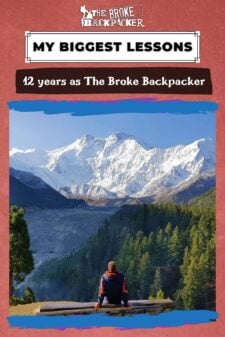The Broke Backpacker is supported by you. Clicking through our links may earn us a small affiliate commission, and that's what allows us to keep producing free content 🙂 Learn more.
A-heidy-ho friends! And welcome to a knowledge packed journey down memory lane as I share some of the best decisions, worst mistakes and most important lessons I’ve learned over the last twelve years as the OG Broke Backpacker.
On January 30th, 2013, I first registered the domain name The Broke Backpacker. It was to be a decision that would change my life forever and catapult me upon a journey filled with more glorious moments, insane struggles, epic highs and crushing lows than I could have ever imagined.
At the time, I didn’t own a phone or a laptop, just a cracked iPod touch where I would write out my observations in the notes app. Once a month, I would jump into an internet cafe and upload my latest stories and travel guides as I gallivanted around India, primarily hitchhiking and Couchsurfing, on a budget of just $10 a day.
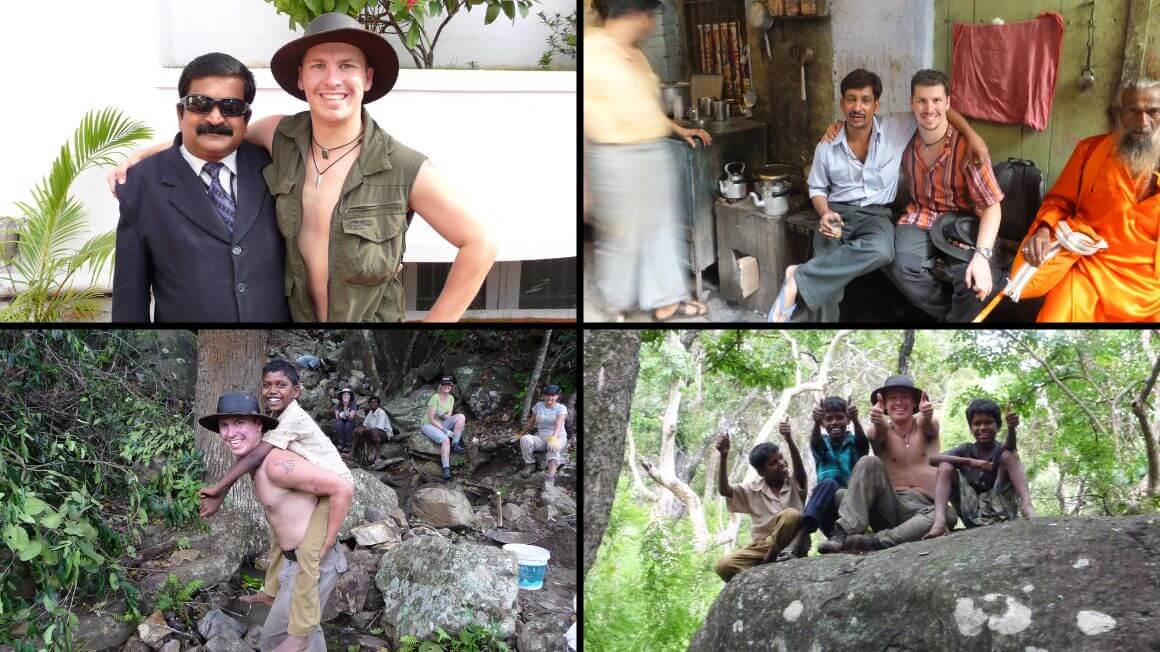
The Broke Backpacker is supported by you. Clicking through our links may earn us a small affiliate commission, and that's what allows us to keep producing free content 🙂 Learn more.
The Broke Backpacker grew fairly rapidly when some of my travels in Venezuela, The Philippines and Iran went viral. This laid the path for me to hire other writers and to invest into growing the site.
Over the next twelve years, I would launch multiple different online ventures – mostly in the travel space.
Early on, I founded an adventure tour company leading tours to Pakistan, opened a guesthouse in the mountains of Hunza and designed my own ‘Broke Backpacker Basics’ travel gear.
I also wrote a book – How to Travel the World on $10 a Day – which my now-partner would read before meeting me and which inspired her to hitchhike across Latin America (she’s a badass).
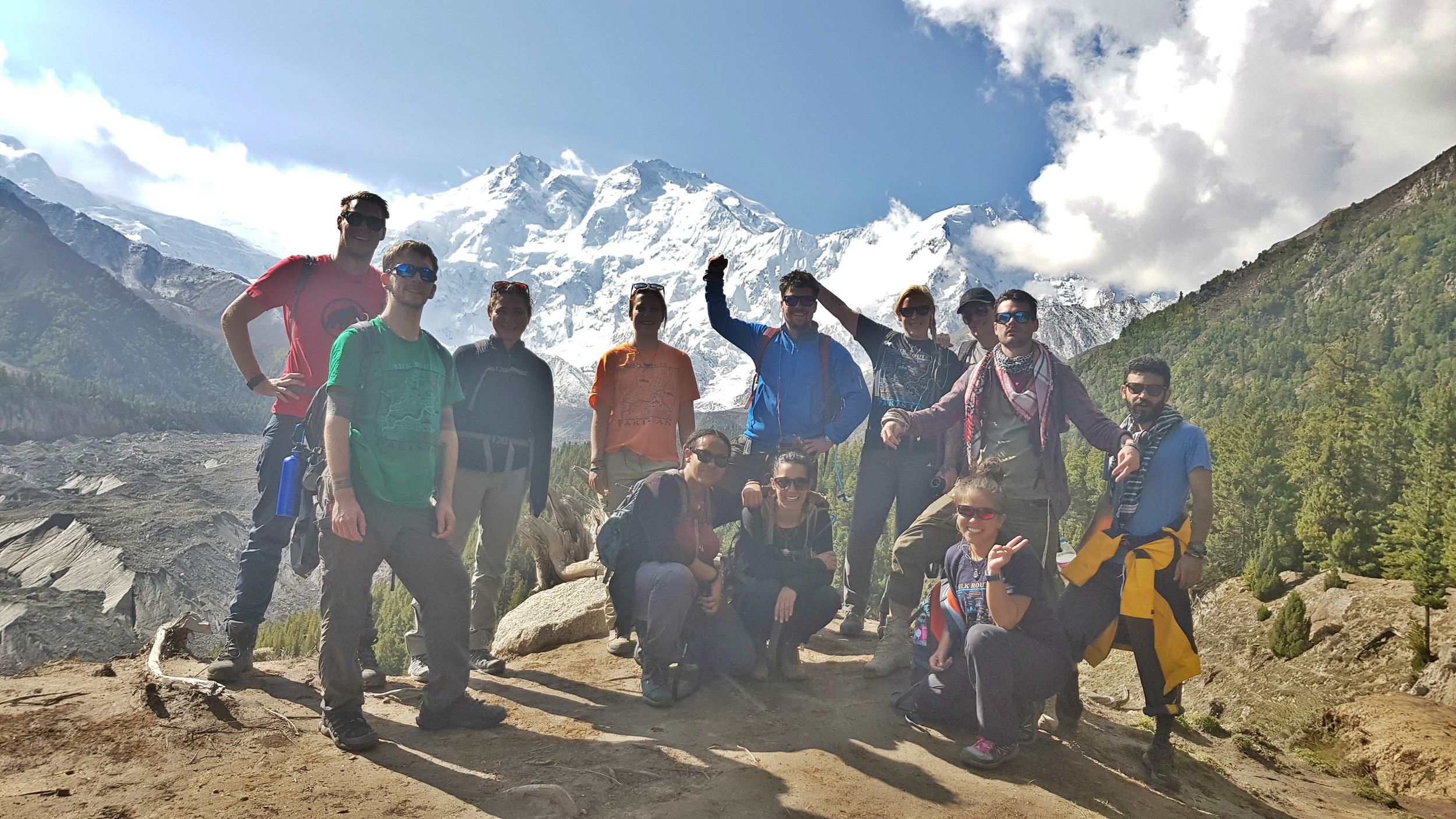
I launched a dozen other small websites focusing on niche destinations – e.g. Amsterdam – and monetised these through affiliate marketing, attempting to leverage what had been financially successful on The Broke Backpacker. Most of these sites failed, but I learnt a lot experimenting with this model.
Being a lover of protein bars, I randomly spent a good chunk of time trying to launch a cricket-powered protein bar under the name Primal Protein (should have trademarked that).
I also spent three years trying to build a backpack out of recycled ocean plastics – a noble idea that proved incredibly fucking challenging to bring to life.
In September 2021, I opened Tribal, Bali’s first custom-built coworking hostel for aspiring entrepreneurs, with my good friend and Co-Founder, Mark Batte.
We are now working on Tribal 2 and whilst I can’t say much at this time, it is going to be freaking ah-mazing. We’ve got the land, are working on the plans and hope to start construction by mid-year… it’s a MUCH bigger project than the first one where we are taking the lessons we’ve learned and working hard to create the best digital nomad focused hostel in the WORLD. Watch this space 😉

More recently, I’ve experimented more with local SEO to promote some local businesses I’m involved in within Bali. I’ve also learned a lot about how NOT to do construction and how NOT to structure deals (basically by fucking up a lot).
And finally, after two years of much stress due to running out of money several times, I recently finished my biggest project to date; Ahoy Bali.

This is the ultimate retreat villa in Bali, I can truthfully say there is nothing else like this upon the island of the Gods.
Ahoy is the entrepreneurship holiday hub of my dreams; complete with a huge gym, multi-level pool, epic rice paddy views, ice bath and sauna, a cinema room, an entire wall of whiteboards, space for 24 people, and various co-working and chill out spaces.
In October this year I’ll be leading my first ever ‘Ditch Your Desk Tour’ to Bali, using the villa as the base, in which I’ll be showing folks the highlights of this magical island and also leading workshops on entrepreneurship, mindset and strategy. If you’re interested, slam that big red button below:
So friends, that’s kind of a chronological timeline of some of my most noteworthy ventures, and whilst I have had a handful of spectacular wins, I’ve also endured more failures than I can even remember (and that’s a good thing).
Today, I’m sitting down to share my biggest lessons from 12 years of working in the travel space.
First things first though, I want to paint an accurate picture of where I started on this journey…
I had almost no money, no technical skills and no idea what I was doing.
I have always been a somewhat above-average writer, enjoying writing short stories and dubious poems from a young age. That was what I had. It wasn’t nothing, but it wasn’t a lot. .
I am a naturally enthusiastic person, often repeating to myself that – enthusiasm is the key to every door – a mantra I firmly believe in. I do believe that my enthusiasm and optimism is a big part of why I was able to succeed.
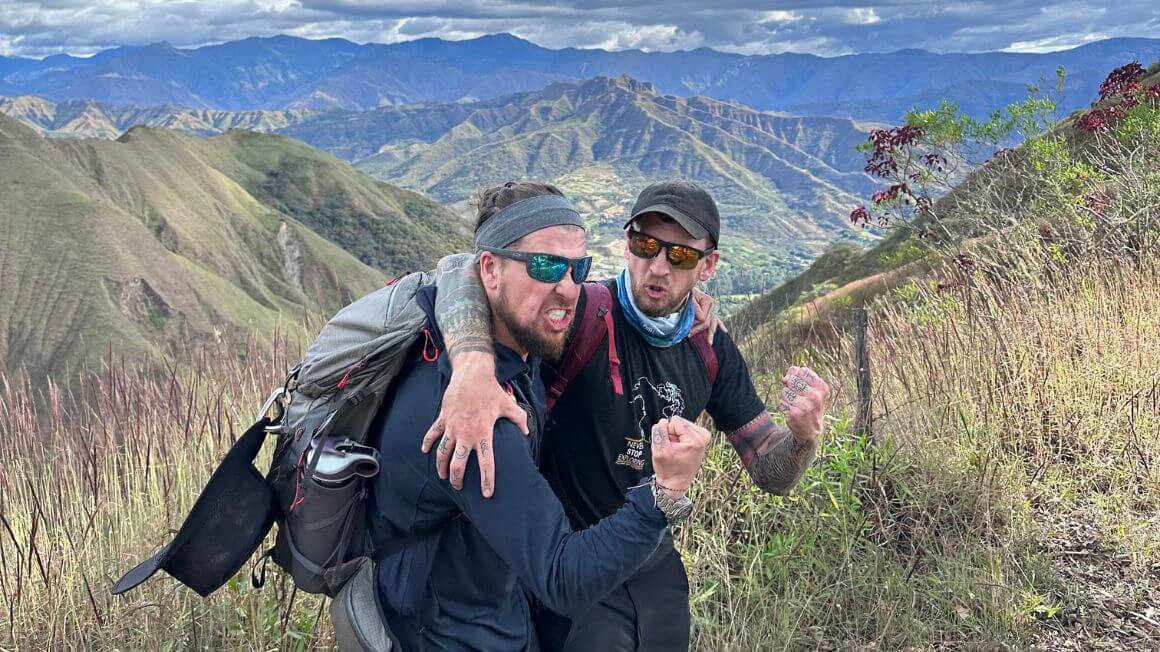
As a kid, I struggled at school on account of being dyslexic (I couldn’t really read at all until I was past 10) and having an erratic attention span. I did however love to hustle, and so I was always buying and selling stuff.
I used to bring sweets and colourful gel pens into school and flog them to classmates. Later, I got into thrifting in a big way – going round car boot sales, markets and charity shops and trying to buy stuff I figured I could sell for a profit on eBay.
Obsessed with Star Wars, I had an encyclopedic knowledge of what each action figure was worth and made a few thousand pounds in my childhood buying and selling these and other (mostly tin soldiers and occasional comic books) collectibles.
As a teenager, I did a bit of lifeguarding at the local swimming pool, and taught kids to windsurf at the local reservoir (freezing, absolutely freezing) whilst juggling a paper-round (yes, on a bicycle) with the goal of making some money to travel before I pursued my life long ambition of becoming a real-life action man.
I wanted to toughen myself up and so I planned to join the Royal Marines. Before I did, I headed to Costa Rica with the plan to hike from the Atlantic Ocean to the Pacific Ocean, a two-week journey that would take me through teeming jungle and across swollen rivers.
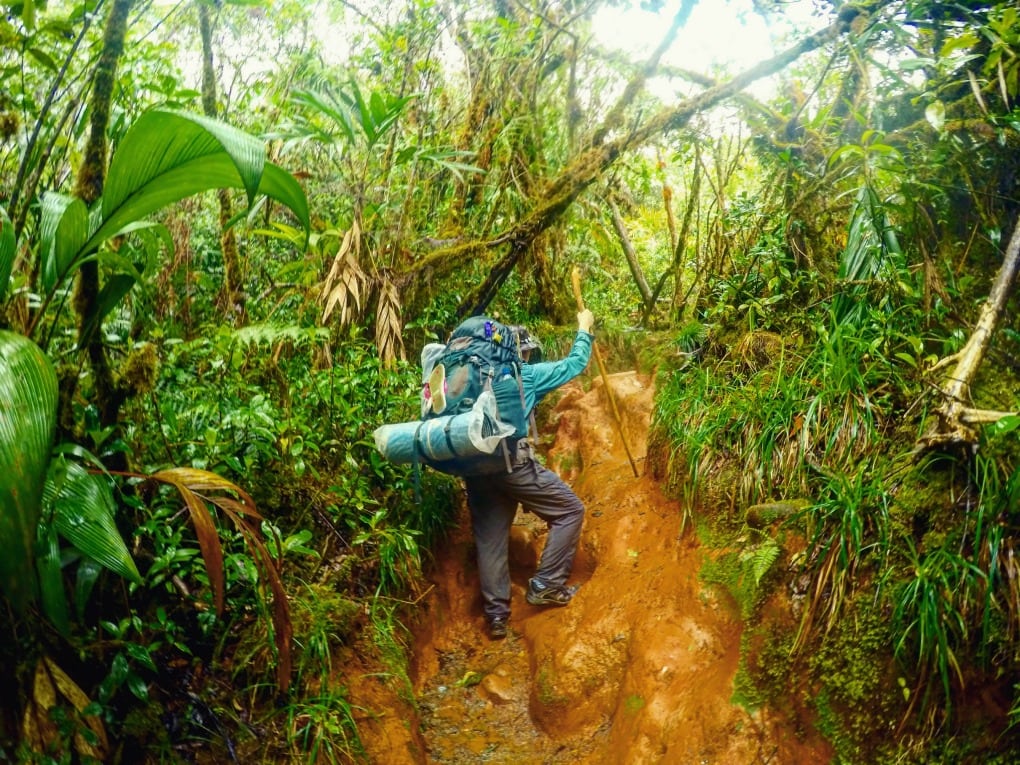
Costa Rica was wet, really fucking wet. This would be the adventure I would ever do and the first of MANY adventures I would do at the wrong time of year.
My epic hiking goal was dashed when I catastrophically injured my leg and spent two weeks in hospital before being flown back to England, feeling quite broken and utterly crushed.
My first backpacking trip, at the age of nineteen, was an utter failure and worse, at the time, I was no longer able to get any ‘interesting’ role in the armed forces as my leg was, in a word, fucked.
My leg has never fully healed, and it took the best part of a year before I was fully mobile again after this injury. It took me longer to come to terms with it mentally.
Unsure what to do with my life, I stuck around in England long enough to confirm that working minimum wage in construction or unloading lorries was not a good fit and that I was not really qualified to do much else.
I applied for a bunch of ‘interesting’ sounding jobs and was rejected from all of them.
I packed my backpack (the same backpack I’ve now been using for 16 years) and with three thousand pounds to my name, I took off for India on a two-year visa with no plans to return to England until the visa was finished.
I spent the next four years traveling in India, Nepal, Myanmar, Thailand, Japan and Laos.
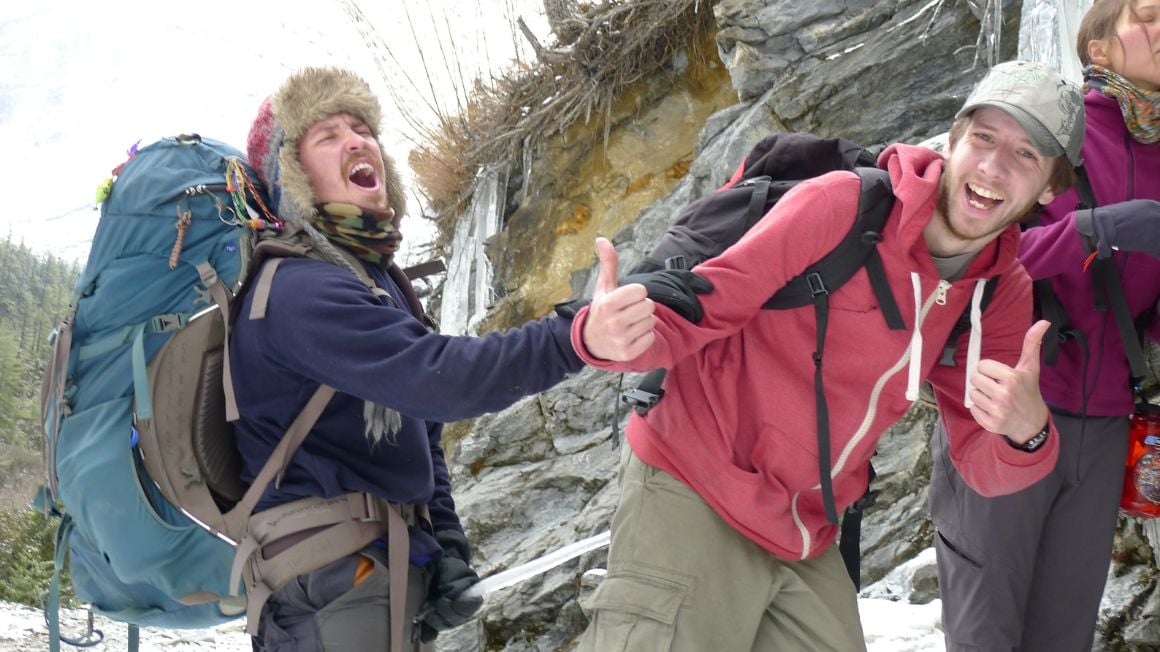
Along the way, I realised that there wasn’t much in the travel blogging space that offered any real resources to people with limited finances. The bloggers I found online were traveling on budgets of thousands of dollars a month, and mostly in more popular ‘touristic’ countries.
I could find almost no information on some parts of India or on Myanmar.
Many of the countries I was most interested in, like Iran and Pakistan, had not been visited by any bloggers that I could find… and it was completely unclear to me if it was possible to hitchhike or wild-camp in these places. How easy was it to cross the borders? Could I ride a motorbike there? Was it safe? What was a logical route to take when exploring these places? Would Couchsurfing work in the Pakistani mountains or the Iranian desert?
I decided to go and find out, and to write about it along the way. And that takes us neatly to 2013, when The Broke Backpacker website was officially born.
Over the last twelve years, The Broke Backpacker has grown into one of the best known travel blogs on the web. We’ve had many highs and many lows and along the way lessons have been learned.
Thank you for bearing with me through the backstory. If you want to know more about the journey itself, I’ve got a post on how I went from broke backpacker to serial entrepreneur.
But now my adventure amigo, strap on in, it’s time to share the 12 biggest lessons I’ve learned over the last twelve years.
- Lesson 1: It doesn’t have to be perfect.
- Lesson 2: The winning formula is Routine.
- Lesson 3: Get off your fucking phone.
- Lesson 4: Trust your intuition
- Lesson 5: Work on your mental health
- Lesson 6: Take at least one digital detox a year
- Lesson 7: Understand the value of success
- Lesson 8: The importance of deep work and 80:20
- Lesson 9: Never STOP creating
- Lesson 10: Follow the money, be flexible, fail cheap.
- Lesson 11: Embrace discomfort, take risks.
- Lesson 12: Don’t compare yourself to others
- BONUS Lesson 13: Be Kind to Yourself
- Buy Us a Coffee!
Lesson 1: It doesn’t have to be perfect.
It is so easy to simply NOT start a project, an idea, a blog post, a conversation. Many of us are paralysed by fear of something not being good enough or of being rejected in some way. A lot of us have negative self-talk (more on fixing that later) which makes it incredibly challenging to put something out there as we torpedo ourselves with critical thoughts before our idea ever actually sees the light of the day.
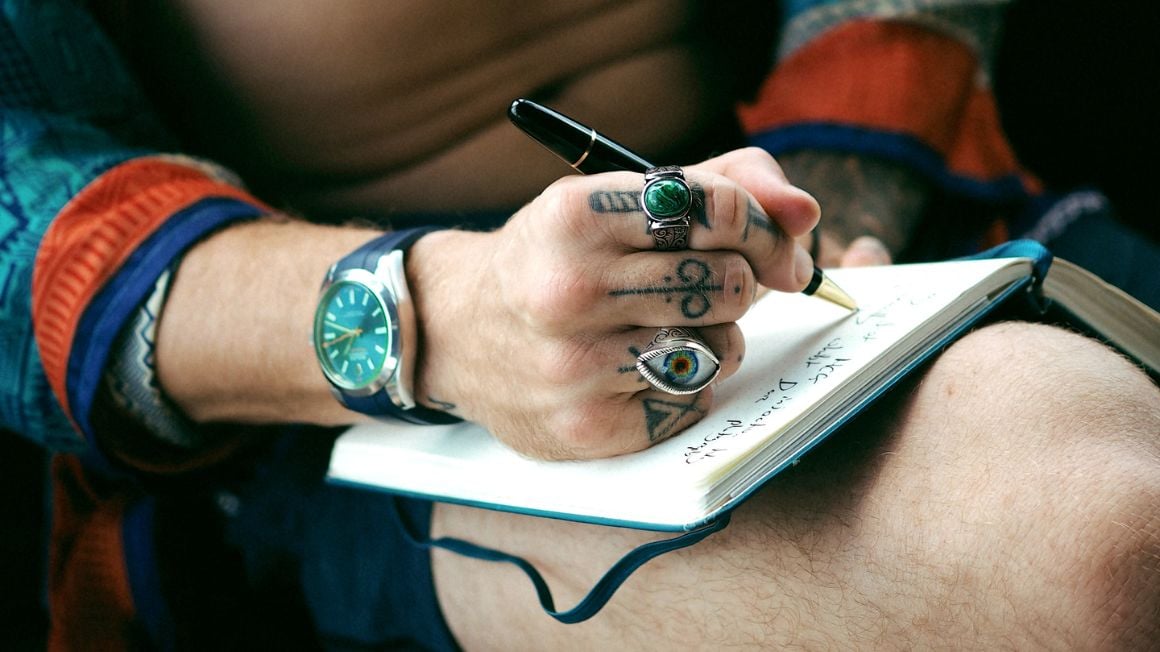
The thing is, nothing is ever going to be perfect – and that’s fine.
I have learned that it’s better to just launch and see, rather than to not launch. Perfection is the enemy of good, and good enough and out there in the world is much better than seeking perfection and either wasting too much time or getting disheartened and giving up.
Little secret for you – When I launched my first tours to Pakistan, I didn’t have an itinerary, hotel bookings, a driver or transport. I figured there was no point in working all of that out until I knew I had actually sold out a tour. I sold the tour out in 2 days, which was quite the surprise, and then figured out the details.
Lesson 2: The winning formula is Routine.
If you want to win, you need to set up the conditions so that it is hard to fail. Willpower is finite, it runs out… You cannot hope to succeed with willpower alone, it just doesn’t work. You need to game YOURSELF – you need to set up your day in a way where you are consistently moving towards your long-term goals.
Ultimately, I attribute most of my success to having clear goals to work towards, healthy habits that move me closer to these goals, and a system in which I am tracking my progress and output. Let’s break this down somewhat…
Your dream life in two years time
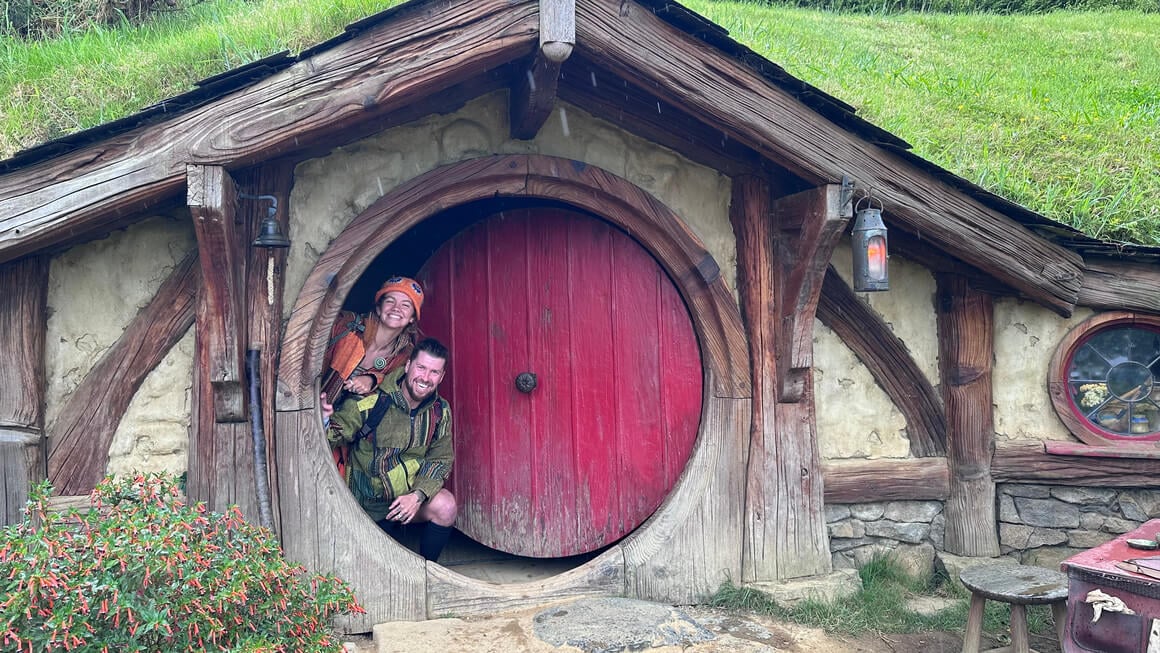
What do you want your life to look like in two years time? Write it out, get really clear. What do you look like? What are you working on? Who is around you? Where are you? What does your ideal average day look like in two years time?
Figuring out what you want your life to look like in two years (or five years) time is a powerful way to guide your daily and monthly decisions. Once you know where you want to get to you can then figure out the steps that you need to repeat again and again and again to get there.
This means working out what habit you want to cultivate. Below is a list of habits which I have tried to cultivate, some with more success than others, over the last 10 years. Not all of these are daily habits but some of these I try to hit once a week or twice a month
Selecting your habits (below are mine)
- Meditation
- Icebath / Cold exposure
- Journalling (at least 3 pages)
- Engine (HIIT / Crossfit / Hyrox / Cardio)
- Strength Training
- Home stretch
- Core Tabata (4 mins of intensive core work)
- Practice a skill (e.g. playing an instrument)
- Read a book
- Get sun (tan)
- Sober day
- Resist temptation (e.g. Such as really wanting a drink, but not giving in. It is important that we recognise and celebrate these wins throughout the day).
- Walk 5km
- Money-work (Anything you do to keep the lights on)
- Creative work (Anything you do for passion or side hustle)
- Gratitude
- Phone health (no phone between 8pm-11am)
- Introspection work (journal analysis, white board work)
- Self care (e.g. Massage)
- Sauna
Some of these habits I’ve had much more success with than others and some are now pretty much hardwired into my daily or weekly schedule.
Then there are some habits, like meditation, which I tend to fall in and out of practice with. There are some months where my whiteboard looks like a battlefield of missed habits. But instead of letting that defeat me, I find the wins in what I HAVE done and crucially, I record the data…
Recording your habits
I have a whiteboard next to my bed and at the end of every day I tally up how I’ve done and put a tick next to habits I’ve hit during the day.
At the end of every month, I record the relevant scores onto Trello and do an end of month review in which I answer several questions. I’ve been answering these end of month questions for over ten years. This data is absolute gold and allows me to clearly see my progression in entrepreneurship, personal relationships, mental health and athleticism. Reading back through past answers is incredibly powerful.
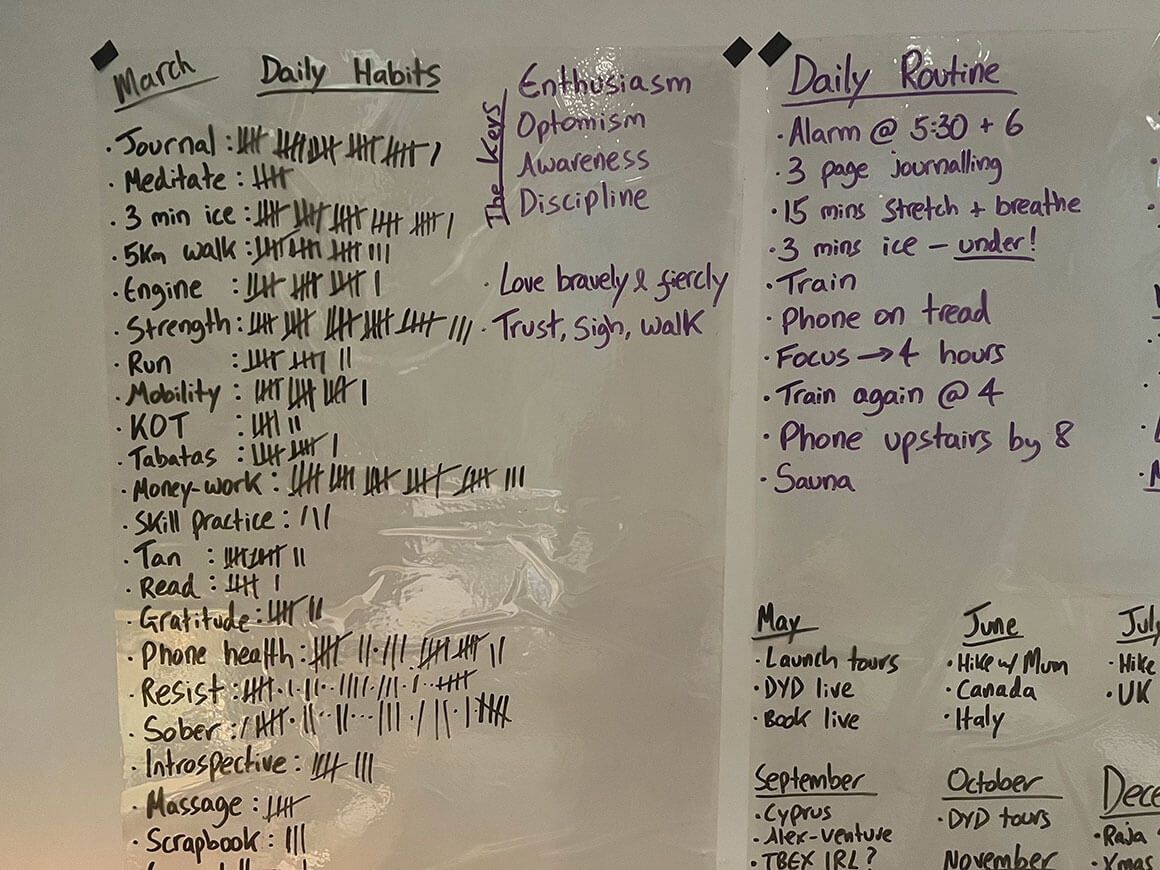
Ultimately, what habits you choose is up to you and will depend on how many goals you have and which of these goals are your prioritity. At this stage in my life, I am able to focus a pretty big chunk of my time onto training but when I was scrapping it as a young and penniless writer this was not a priority to me and I was less often in the gym.
Some other habits I have incorporated in the past but am not currently tracking include: Mindfood (e.g. educational podcast), 24 hours fasted, Act of kindness, Speak to a new person, Get up before 5am, 24 hours off a poor habit.
It is only through tracking your habits that you can really keep yourself accountable and have an accurate idea of how you are actually doing, which is so important if, like me, you struggle with negative self talk – a nagging motherfucker in the back of your head who insists you are weak and should just lounge around watching Vikings all day whilst waving your sword around your head (yes, I own a sword – three actually).
Keeping your word to yourself is paramount – if you cannot do this, you cannot trust yourself and by extension nobody can trust you.
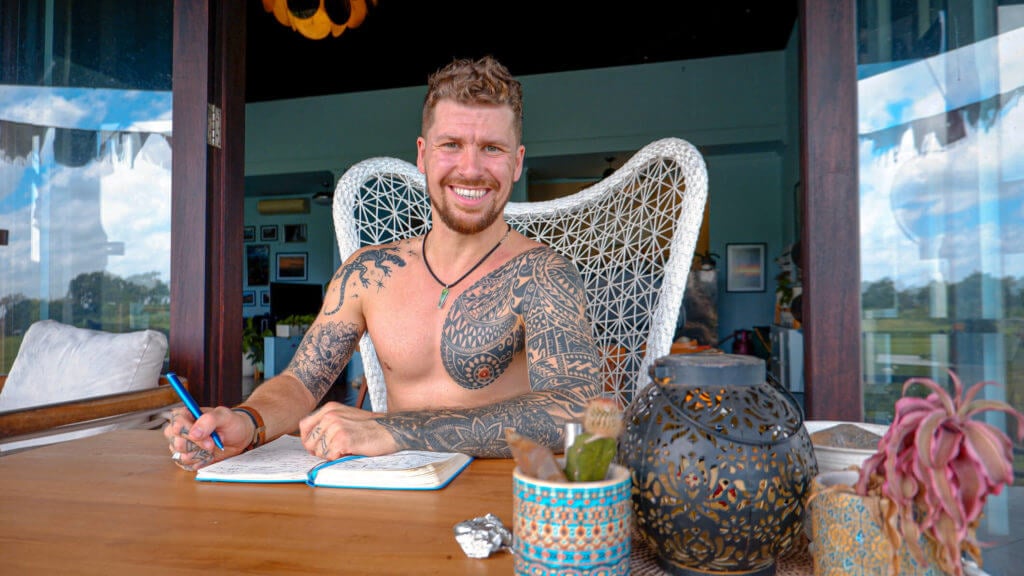
You gotta figure out how to keep your word to yourself and a big part of that is tracking how you’re doing so you can celebrate the progress and wins…
If you can SEE that you’ve been to the gym three times this week, rather than your goal of five, it’s easier to feel good about what you DID do rather than what you didn’t do.
Going back to the clear and awesome image of you in two years time, ask yourself this question – what do you need to do every day, or every week, to be able to reach this version of yourself?
You don’t need to be perfect. You just need to show up for your future self, because if you don’t build the life you want, nobody else will do it for you. Trust is built one small promise kept at a time. So keep your word to yourself. Keep tracking your progress. And keep moving toward the ‘2 years from now version’ of you. They’re counting on you.
“A dream written down with a date becomes a goal. A goal broken down into steps becomes a plan. A plan backed by action makes your dreams come true.” Greg Reid
Lesson 3: Get off your fucking phone.
The single biggest obstacle in your way to building the business, making the money, launching the product, sleeping properly, connecting with your self and others, feeling healthy – it’s your phone.
Phones are amazingly powerful things which enable us to do so much more than just stay in touch with loved ones. The problem is that whether it’s Instagram or Twitter or Youtube or Netflix, almost all of us have one or two apps that we find particularly addictive.
I’m just like anyone else, my phone calls to me, it beckons to me, it whispers seductively in my ear ‘just a little look, it won’t hurt, let’s see if so and so has messaged you, don’t even think about it…’ and I find myself instinctively reaching for the fucker. It gets in the way of my focus, it gets in the way of my creativity and sometimes, irony inbound, it even gets in the way of my relationships.
I’m not going to go on and on about this, I’m just going to share how I personally manage my phone use.
Firstly, my phone is pretty busy. I have over 80 people I’m working with across different projects, plus friends and family. Therefore, I make sure I NEVER go on my phone first thing in the morning; I have learned repeatedly that there could be anything in there and that it might be upsetting or stressful. Therefore, I need to safeguard my morning and journal first. When I am ready to go on my phone, I do it from the treadmill – this is a much more effective use of time than lying around.
I periodically delete (and reinstall a few days later) apps I feel I’m habitually checking, usually Instagram. This seems to slow the time-suck.
For the evenings, I use the screentime app Opal – this effectively turns my phone into a brick from 8pm to 8am – I can still access music and podcasts but that’s about it. Apps like Opal though are ultimately only useful if you’re able to resist turning them off – they work by enforcing a delay before you’re ABLE to turn them off and that is usually enough to quieten some cravings but it doesn’t always work so personally, I sleep with my phone upstairs and away from me.
I have a second ‘evening phone’ that has music, podcasts and Whatsapp; which I only use to text myself things I think of that need to be actioned tomorrow, or to call my parents. Hardly anybody has that number; just my folks, my partner, and my assistant.
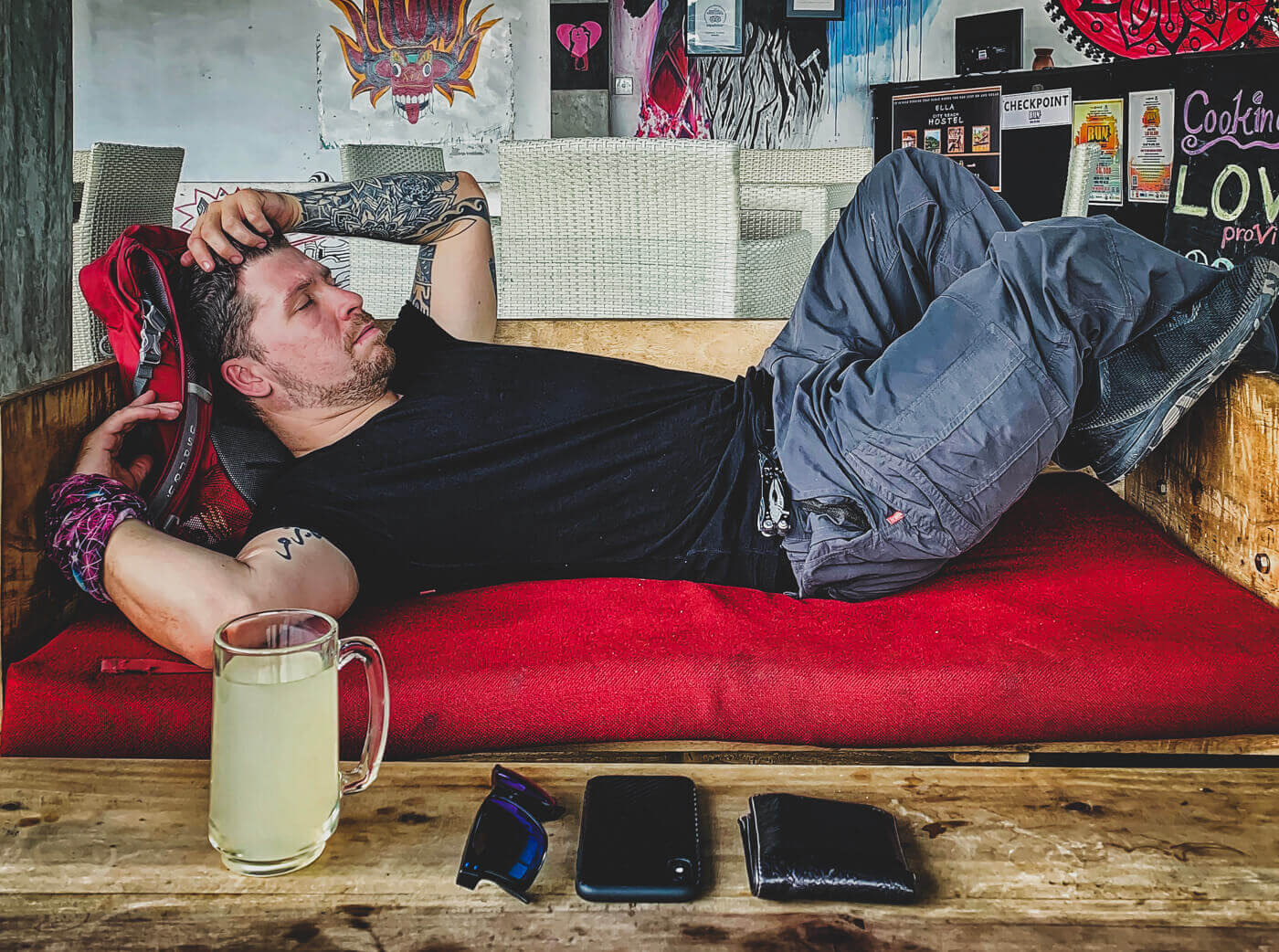
In general, a perfect evening for me is pottering around my room listening to music, reading a book, journalling, tidying, playing with my dogs – all things that bring me joy and all things that I will not do if I have my main phone in the room with me.
Unless you are superhuman, there is probably room for improvement with how you interact with your phone. It’s especially worth mentioning that if you are working on your phone, especially on any social media platform, it can be even worse because you’re able to justify to yourself that your ‘job is social media’ – maybe it is, but you definitely need boundaries or it’ll completely take over.
I wrote a whole post previously so if you want more strategies, be sure to read; how to get off your fucking phone.
Lesson 4: Trust your intuition
Your intuition is a muscle which, if not trained and trusted, will wither. This is a part of you that just knows things… and you have to listen to it.
Your intuition can tell you if somebody is lying to you, if somebody is deserving of trust or not, capable of doing the thing, or not. It is a protective forcefield… it will keep you from harm and it will keep you from harming yourself!
The problem is that it tends to pipe up at really inconvenient moments and of course… you have the option to turn it off, to assure yourself that everything is fine and push on with trusting somebody you shouldn’t because they’re in front of you and you don’t want to be rude or don’t want to have to look for somebody else to fulfill the role you need doing. Basically, you can completely shut down your intuition and this is to be avoided.
I’ve been fucked over a few times now on my journey. A big part of my problem is I didn’t really know how to be ‘boss man’ – I was too friendly, too generous and repeatedly ended up being taken advantage of by some of the people I was working with.
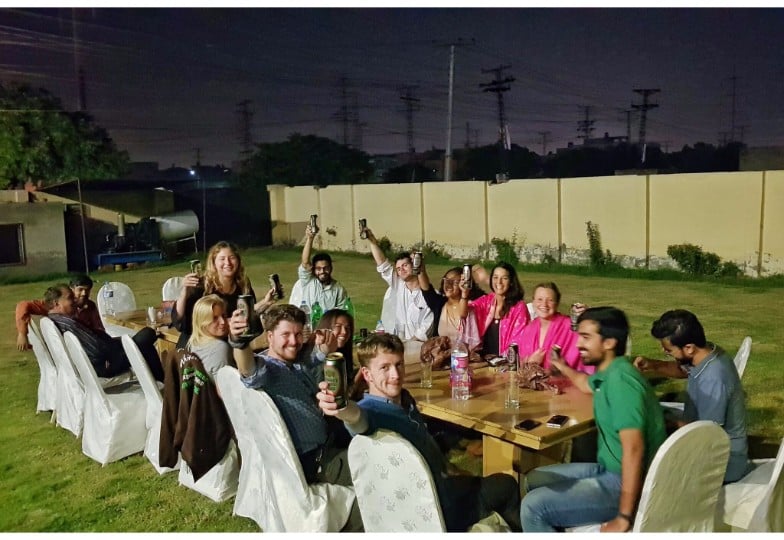
There’s one chap out there pretending he founded a tour company which he wasn’t even a part of for the first two years but which he did manage to get out from under me. He never could have done anything like set that company up on his own, he just didn’t have the people skills or the appetite for risk.
Some people are simply cunts… there’s no other way around it. Everybody wants something, but most people don’t want to work for it and if you give someone the opportunity to steal from you, some people will take it – justifying it to themselves until the story they have weaved in their own head becomes their actual reality.
I had another business partner, and long-time friend, steal $25,000 from me.
I’ve had people take down payments for work and then disappear. I’ve had folks absolutely assure me they are not using ChatGPT to write for them, only to catch them a month later.
I’ve leant money to people who were never going to pay me back when I absolutely KNEW I shouldn’t, when my intuition TRIED to protect me but I ignored it.
Recently, I found another person whom I had a lot of love for, my Indonesian housekeeper who had been with me for six years, had been habitually stealing from me for… fuck knows how long.
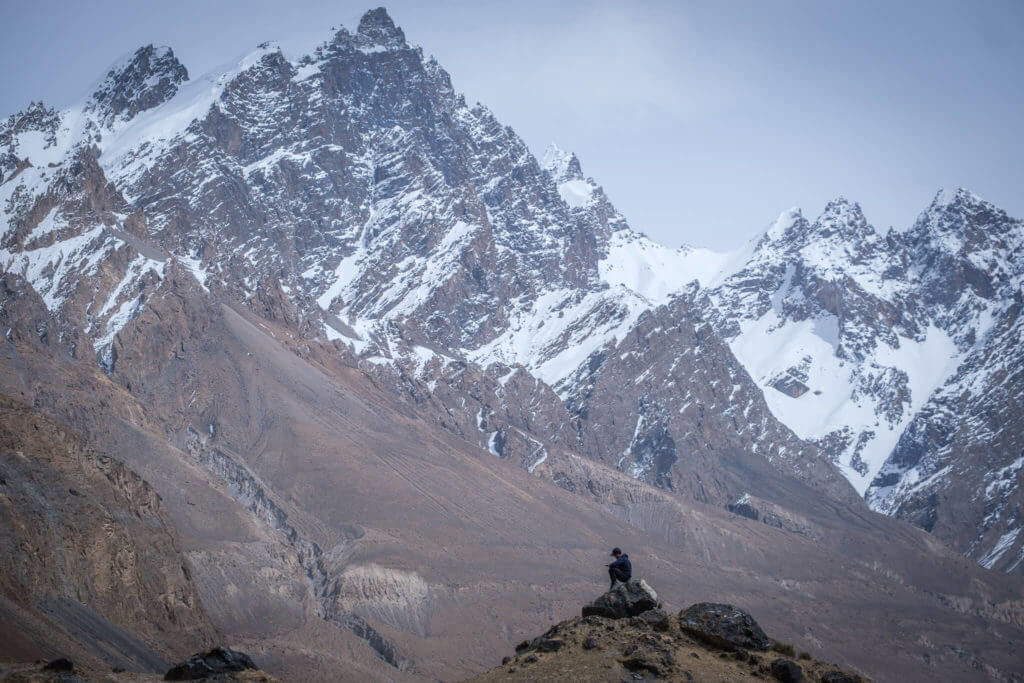
The thing is, in almost all of these instances, especially the most recent one – I knew.
I knew something was wrong. I knew these people couldn’t be trusted and that they were lying to me. I knew they were living a different reality (one in which they had justified stealing my work or my money) and I knew that giving them opportunity, money or help was not in my best interests yet I did it anyway because I shut down my intuition.
I wanted to believe in the goodness of people (and I still mostly do) and I wanted to believe that people would treat me how I was treating them. The thing is that the world doesn’t actually work like that and for every honest and hard working person there is somebody who would rather be dishonest if it means they don’t have to work hard to reap the rewards of hard work.
Do I bear these people ill will? No, here’s why…
Lesson 5: Work on your mental health
On my journey, I have struggled with moments of really poor mental health. My self-talk used to be absolutely terrible where I was constantly berating myself for not being good enough. I used this as fuel to propel my work, but it burns pretty fucking hot and it isn’t sustainable. Ultimately, you need to find a calmer and kinder way to converse with yourself.
Two years ago, I finally emerged from what had been a very dark period in my life. l spent three years struggling with intrusive and dark thoughts coupled with pretty heavy drug use and a horrible relationship with a very negative and toxic person. I had no direction during this time, I really didn’t know what I was doing with my life.
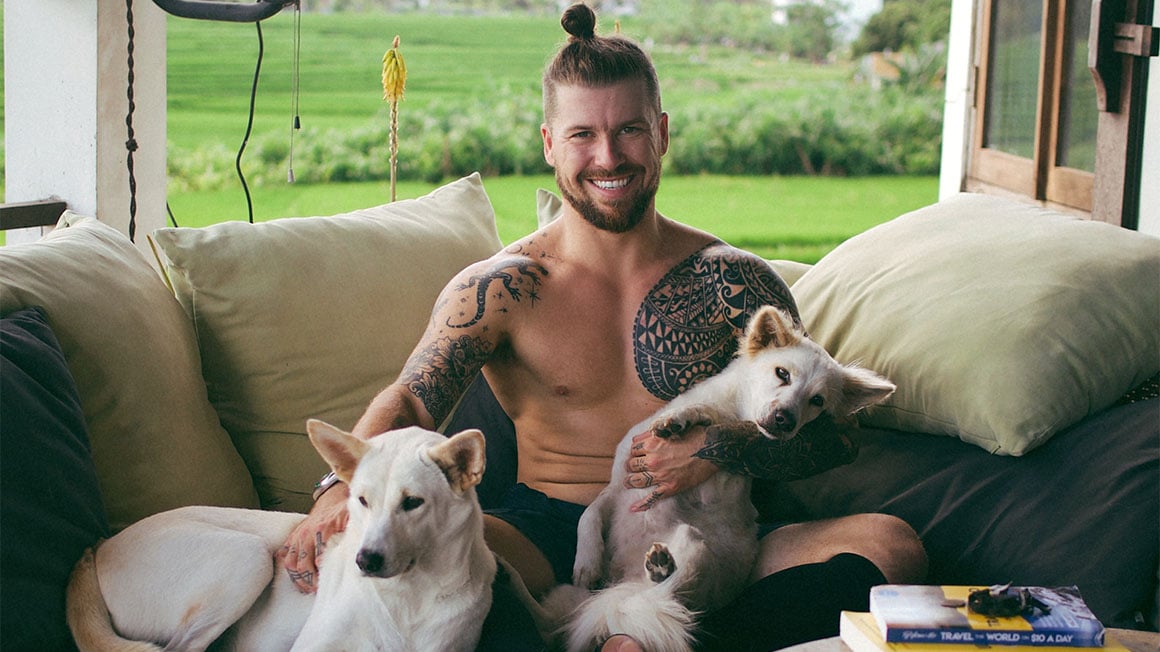
I made all of my worst mistakes during this time, not listening to my intuition and being too paralyzed to change my circumstances.
Now, I talk to myself, and handle myself, very differently.
I rarely get angry at myself or put myself down, and whilst of course I still have off days where things go wrong, I usually manage to ‘find the funny’ and bounce back quickly. I know what I’m doing with my life (My own five year vision is crystal clear, I can see it as if it’s already happened), and I love it.
Here are the five most useful things I’ve discovered for my own mental health…
Exercise
Pretty obvious really but I’m still often pleasantly surprised by just how much better I feel after a workout.
Journaling
In my opinion, this is the cheapest, most honest and most effective therapy out there! I’ve written a whole post about different ways to journal (one of the best things I’ve written and worth a read). I guarantee that journalling can change your life.
Plant medicine
I have had some really powerful experiences with plant medicine that have allowed me to totally reshape how I see things and crucially allowed me to forgive myself for some poor decisions I had made which were playing on a loop in my mind. I have now done two retreats (12 days each) in South America, and I wrote in detail about the first one here.
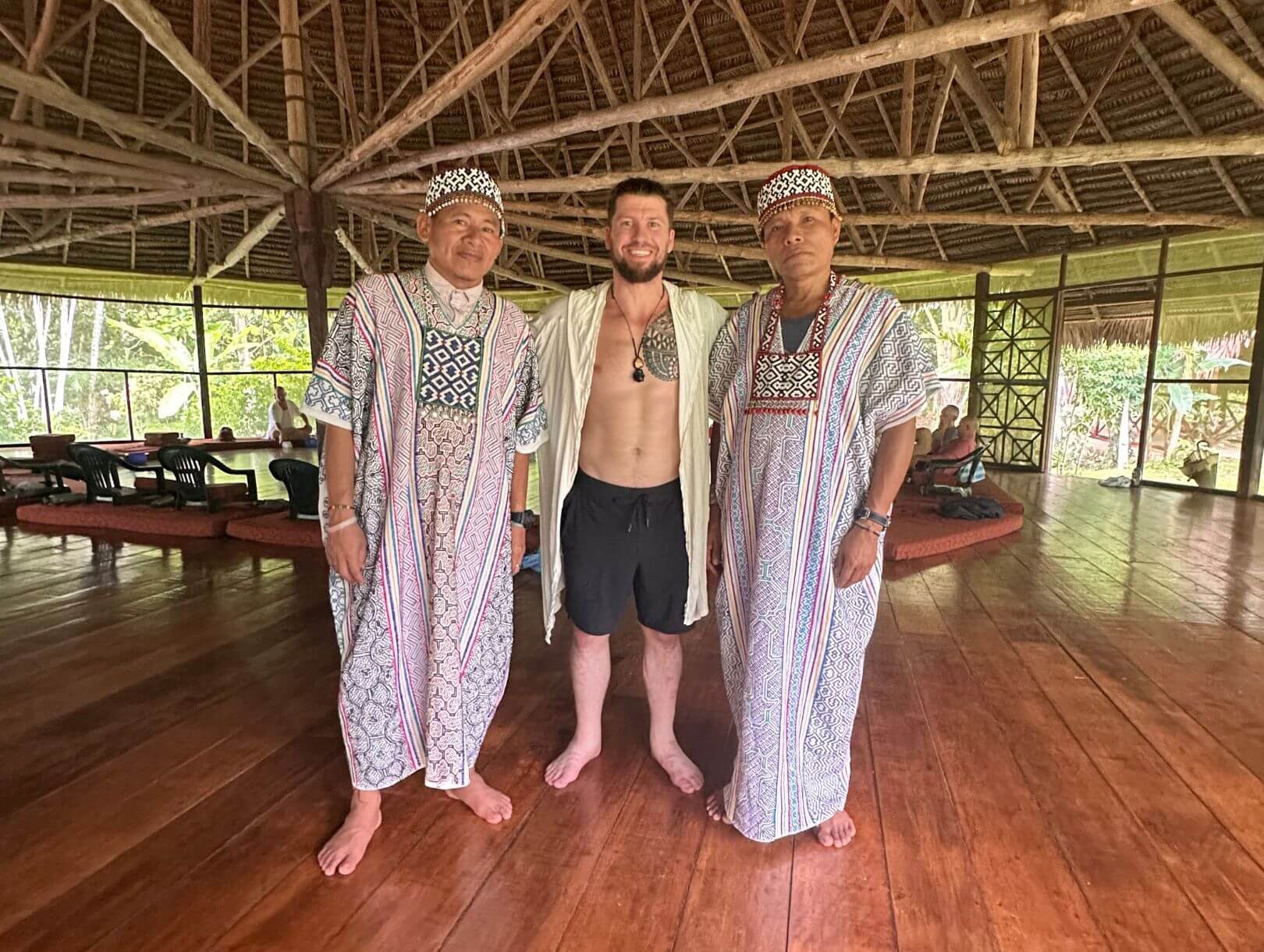
Tracking my habits and celebrating my wins.
Being able to quickly, right now in fact, glance over my shoulder at my whiteboard and see that I’ve accumulated well over 100 ticks across my habits for this month fills me with joy and confirms to me that I am moving in the right direction to get to my own dream future. I have gotten much better at celebrating my wins, no matter how small, rather than focussing on my failures!
Burn stuff!
Fire… it cleanses all!
Back to why I am no longer carrying around heavy grudges against those who have wounded me, myself included: I write letters.
I say exactly what I would like to say to that person if they were seated in front of me and had no choice but to listen. I express how they have hurt me.
Sometimes I rage, other times I cry, occasionally I laugh. I say what I need to say, and then I burn the letters on the full moon.
I always feel a lot lighter afterwards and I am able to spend less time thinking about past wounds, mistakes or people who just don’t matter anymore. When negative thoughts creep in, I remind myself of the fire ceremonies and that I’ve already done the work to feel lighter – for me, this works really well.
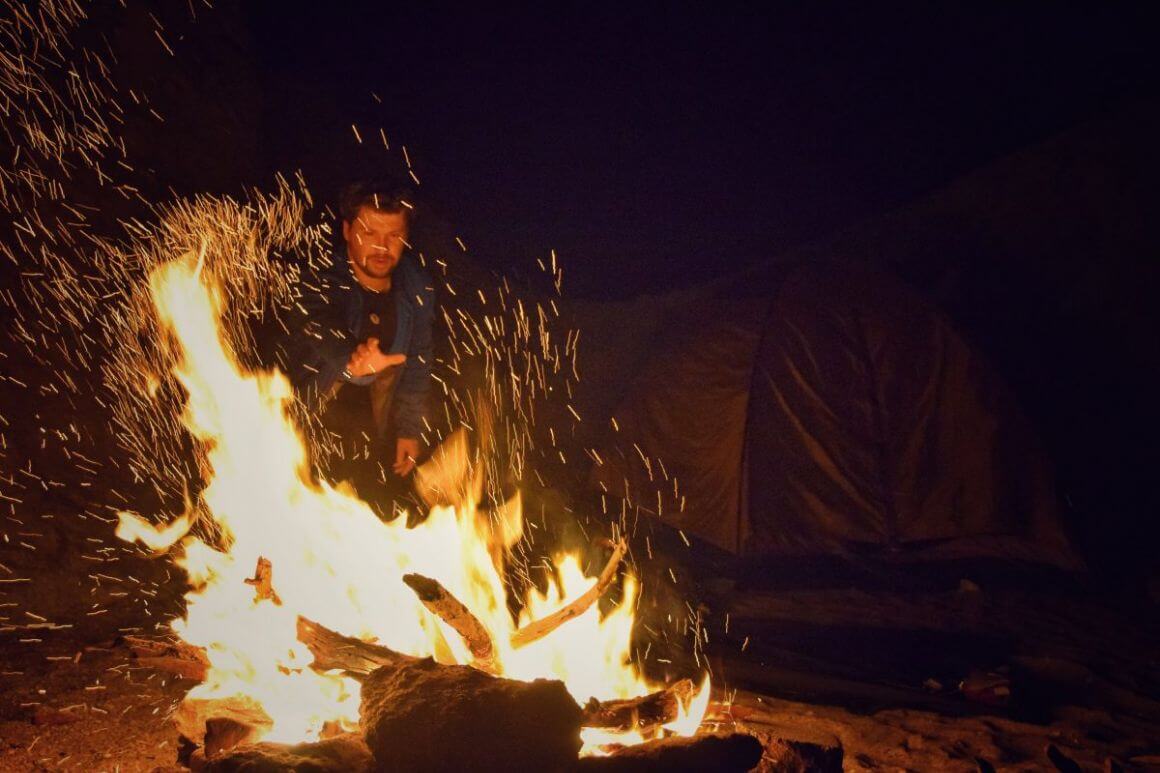
Lesson 6: Take at least one digital detox a year
Taking time away from screens and work is crucial to reacharge your batteries. On The Broke Backpacker, the team and I take the 10th of December to the 10th of January off work. Most of the team don’t work at all over this period and just myself and a couple of the veterans keep things ticking along. The team comes back fresh, having enjoyed time with the family over Christmas (a period where work quality drastically decreases anyway), and ready to hustle.
Personally, I try to go on a long hike or motorbike trip each year where I spend as little time on my phone as possible – that’s a whole ‘point’ of the trip.
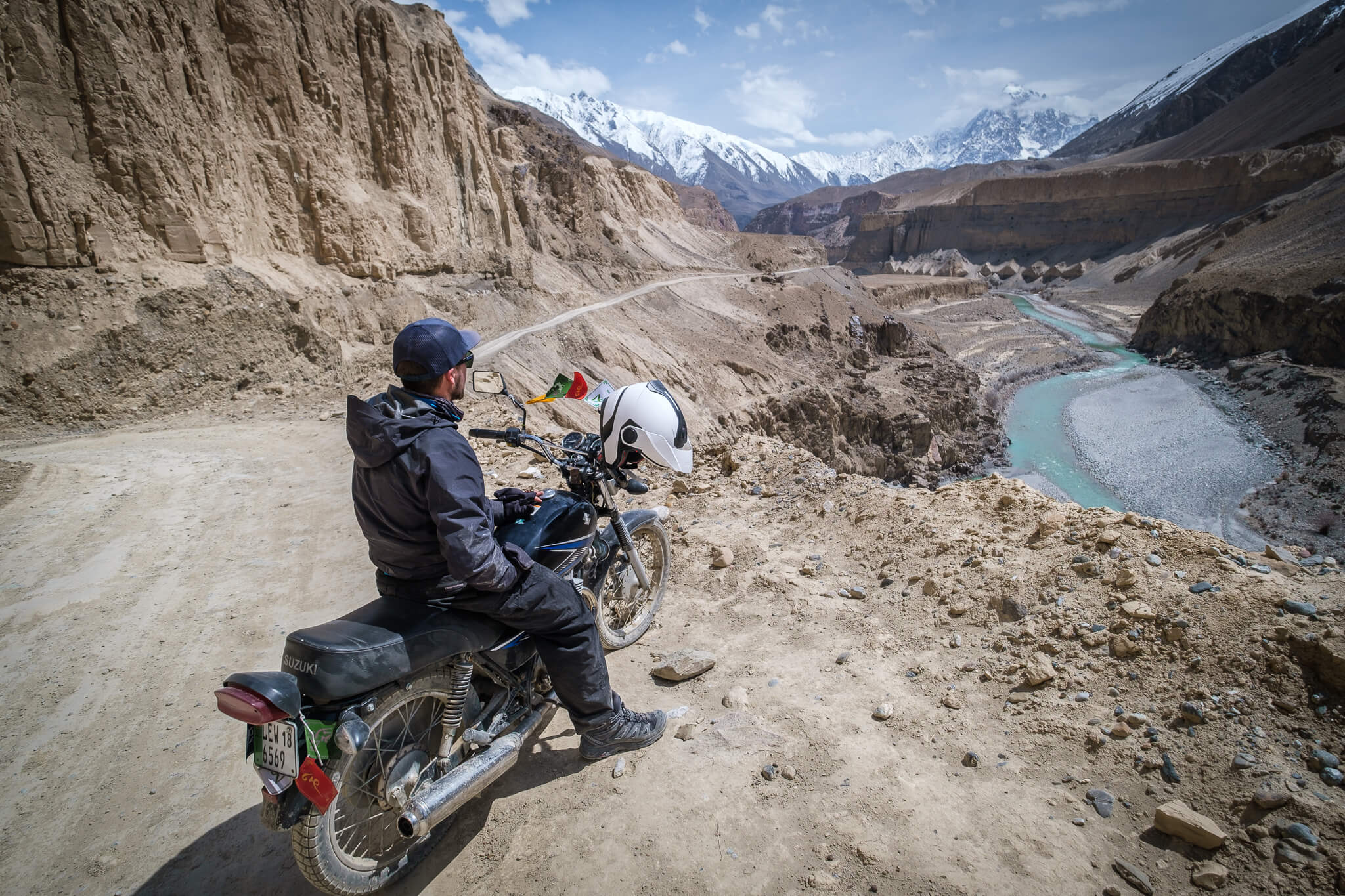
The first ayahuasca retreat I went on; my phone stayed in a safe the entire time, I didn’t even see it for 12 days. It was enlightening, rejuvenating and powerful.
You don’t have to journey far or fly across the world though to do a digital detox. What you need is space. Stillness. Time out from the scroll. So ask yourself; when are you planning your next digital detox?
Lesson 7: Understand the value of success
When you DO find success, it’s important to understand that continued success is far from guaranteed.
Continued success is not a linear journey, there will be roadblocks and you may fail.
It can be very tempting to spend the first big chunk of money you earn on status symbols like watches or cars but this is really not a good idea. Invest your money, safeguard your future, and don’t feel the need to signal to others what you are (or aren’t) worth. You didn’t come this far to become someone you are not, right?
It’s also important to remember your own origin story. If you find success, never forget WHAT YOU PUT IN to get to where you are.
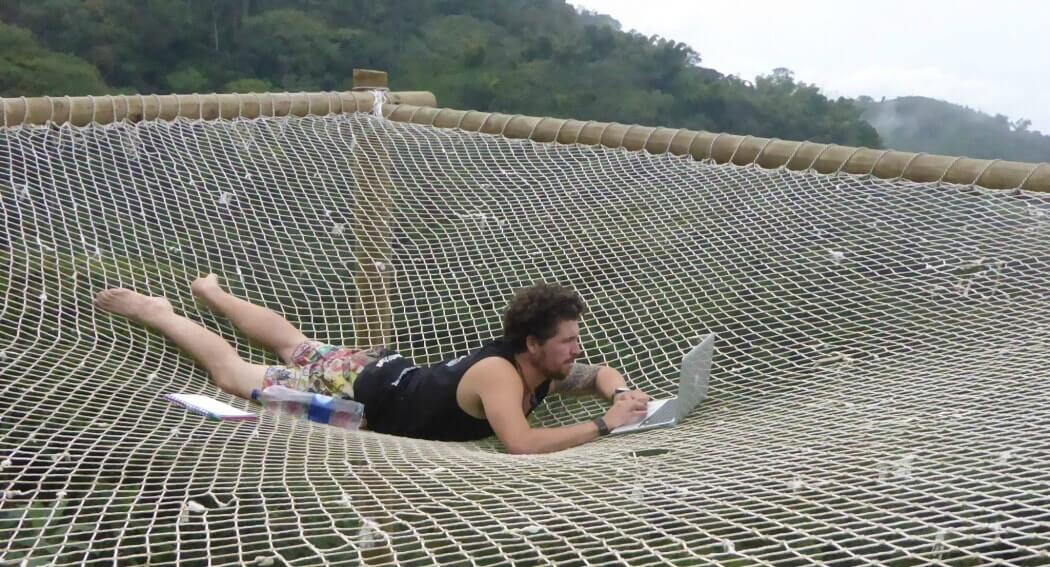
Many folks who come to work with you will never have any real idea of the anxiety you went through, the blood, sweat and tears that you sacrificed, the RISK that YOU personally (not them) took…
Looking in, it is easy for employees or partners to feel entitled to more of your success, more of your money, than is realistic or fair. Never forget, if you are the founder… then you are solely responsible for the company even existing and nobody has taken the same risks as you have.
Respect yourself, and respect your journey. Do not be overly generous with people. There is a line of generosity that makes sense, you have to find it. If you overstep it, people will think you weak and try to take advantage of you. Be very careful about giving away any equity to people you work with.
Lesson 8: The importance of deep work and 80:20
The 80/20 rule states that roughly 80% of outcomes come from 20% of causes, suggesting that a small percentage of inputs often leads to a disproportionately large percentage of outputs.
What this means is that it’s possible to spend a lot of time and energy working on things that really are not going to move the needle; this could be re-designing a logo, responding to comments on instagram, re-writing your author bio… Usually, we all KNOW the big tasks we SHOULD be working on.
Brian Tracy wrote a great book called ‘Eat that Frog’ and it really stuck with me.

Each night, I think about the big frogs I need to eat tomorrow and if I keep putting them off they only fucking grow (or turn into gnarly guinea pigs, which is even worse) which means eventually I get to a point where I force myself to do it first thing as soon as I wake up, that almost always works. Anyway, the point is – work smart, eat your frogs, don’t let them turn into guinea pigs.
Lesson 9: Never STOP creating
When you reach a measure of success, it is very common and very easy to take your foot off the gas. Whilst it is important to take a second to pause, to be grateful and to celebrate wins you should not stop creating… creative energy takes time to build and must be nurtured. Perhaps take a small break, go on a digital detox, go on a retreat or adventure of some kind but trust me; if you stop creating for more than a couple of months, it takes TIME to get into the flow again.
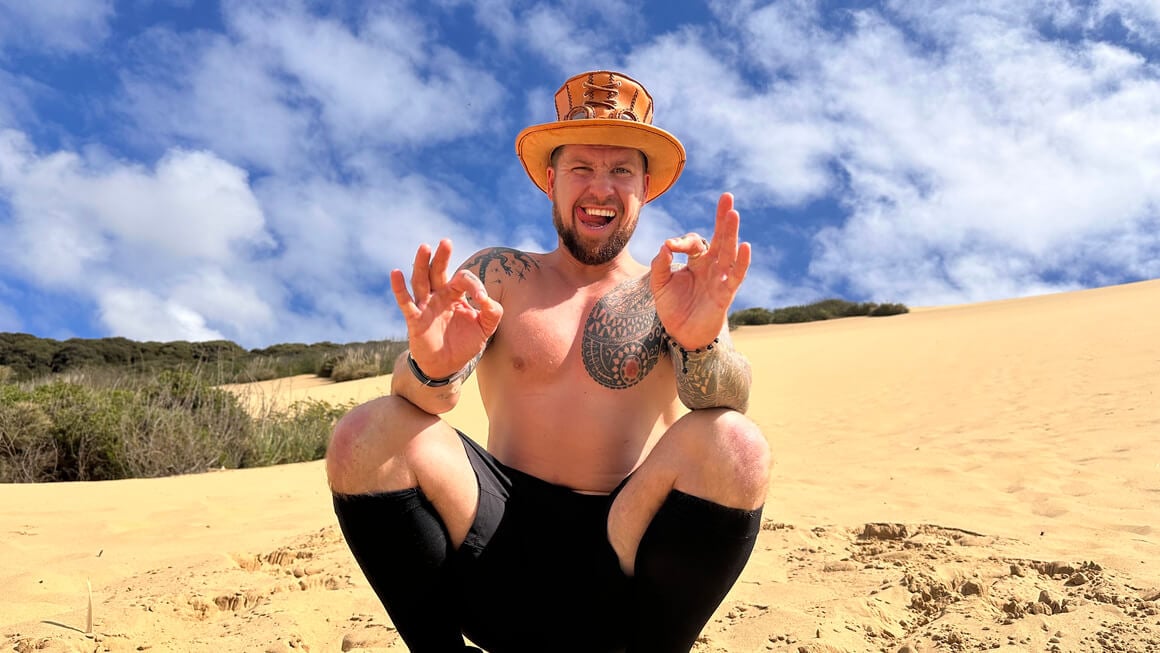
On the topic of creating, it’s important to try and put yourself in the right environment and to surround yourself with positive people. Ideally, if you can be around other entrepreneurs in a co-working space, this will encourage you to get more done whilst also helping you find your tribe and expand your network. If you’re just starting off, staying at Tribal would be a good first step if you’re able to make it to Indonesia.
Lesson 10: Follow the money, be flexible, fail cheap.
Earning money online is not usually straightforward, you need to be prepared to dodge and duck, strike and weave baby!
Something may work for a while, and then stop working – that’s just how it goes. You need to follow the money and keep experimenting on how to make more money per sale.
Weaving storytelling into your sales process is usually a good idea.
You will at some point hit a deadend. This is when you need to decide if you try to smash through it or if you give up on that particular angle / project / venture.
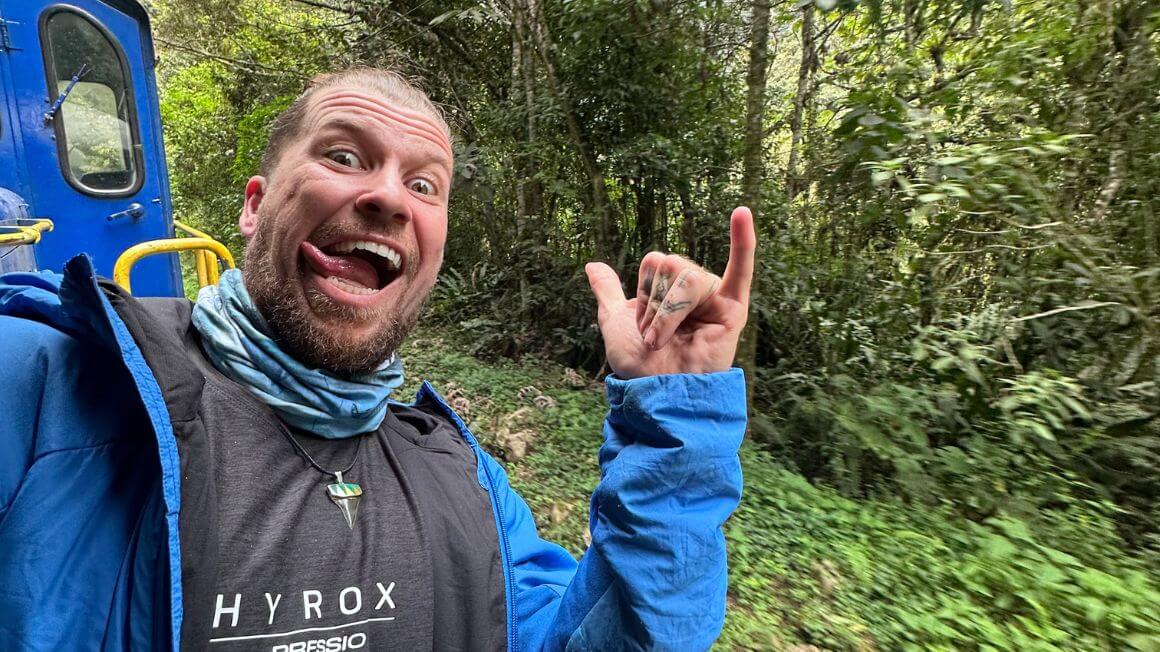
Photo: @willhatton__
Knowing WHEN to stop spending energy in a particular direction and pivot is an art in itself. Just make sure you don’t go all in when something isn’t working – yes, you need to be committed to the dream but you also need to try to fail cheap and fast.
Failing cheap does not mean giving up easily but it means using setbacks as data points to tell you what is and isn’t working. What DID go well that you can double down on? What did you learn that you need to outsource next time? The path to success is not a linear arrow, so your direction WILL likely change a few times on your journey – this is all part of the process.
Lesson 11: Embrace discomfort, take risks.
Growth begins at the edge of your comfort zone. And if you continue to step out of your comfort zone then there are no limits to what you can achieve. Everything I have built and the person I’ve become has all been built on the foundation of embracing discomfort.
To continue to expand your skill set and to evolve into a more capable, more confident human being you need to frequently get uncomfortable.
Being thrown into new environments, stepping outside of our daily routines, talking to somebody who intimidates you with their cool or charm, and diving into the unknown takes us on a journey of self-discovery.
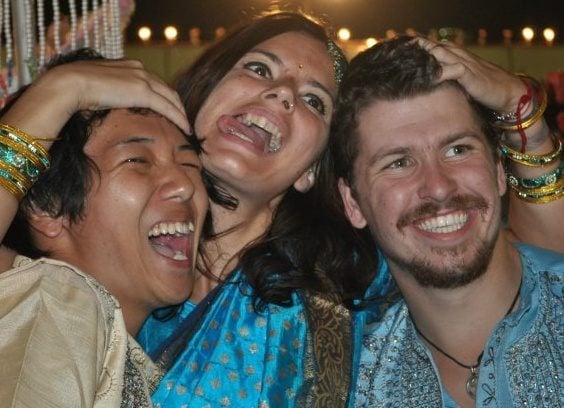
Image: Will Hatton
The important thing is to simply start, here’s a few suggestions…
- Talk to one new person
- Go for a walk in an area you don’t know well
- Join a new fitness class – I strongly recommend using the app Classpass. The first month is free and it gives you cheap access to dozens of different fitness and wellness classes in your area.
As you get some experience, you gain confidence. This compounds and you can crank it up a notch: go out to dinner by yourself; take a trip to somewhere you hadn’t considered before; say hello to a stranger and ask how their day is going.
The more you do this and the further you push yourself, the less scary it will become. Here are a few more suggestions of ways you can get out of your comfort zone:
- Ask for somebody’s number (the exercise itself is more important than if you contact them)
- Try a new skill or sport
- Go to a car boot sale and purposefully haggle
- Volunteer
- Go out into the wilderness without a phone
- Wild camp under the stars
I have made a career out of being uncomfortable – I have hitchhiked through dozens of countries; camped out hundreds of times; slept rough in train stations across India; ridden for thirty hours at a time with cows, chickens and masses of humans; lived on bread and fried bananas; and survived on a budget of $10 a day, all whilst gallivanting around the world without a safety net or much of a plan (at times!). This was often deeply uncomfortable but it allowed me to grow my confidence and skill set.
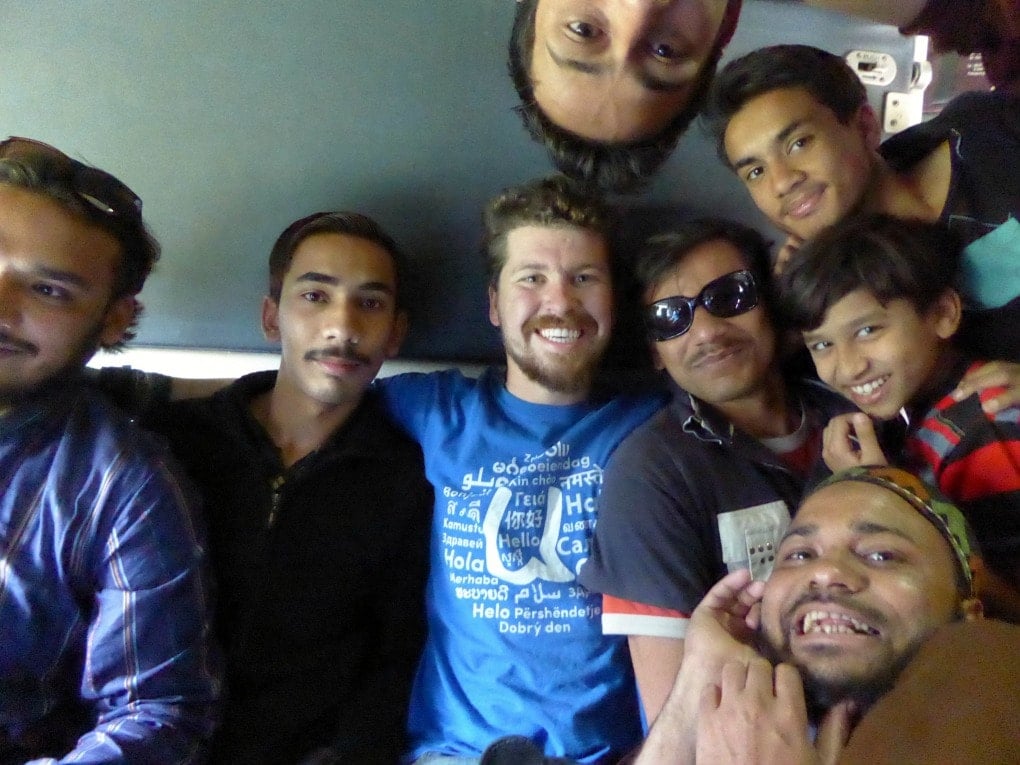
The confidence, skills and experiences that I gained on the road completely changed me and my perspective and helped me to grow in monumental ways. When I first hit the road, I was very shy; confidence was not a skill I had yet in my toolbelt.
While backpacking in India I challenged myself to, each day, talk to one more person than I had the day before. As I started to work that socialising muscle more and more my confidence started to flourish. My social skills improved and my self-belief blossomed. I learned to be agile and adapt, to problem solve and to negotiate.
Along my quest, I’ve had crushing lows but I’ve also had undeniably magical moments and euphoric highs as I’ve slowly but surely metamorphosed into the Will I was destined to be. The more uncomfortable situations you put yourself in, the better you will be at dealing with them. The more confident, self-assured and capable you will become. All of which are essential skills for success.
Lesson 12: Don’t compare yourself to others
The path of entrepreneurship is not accurately portrayed, and it can be easy to become disheartened when you are unable to replicate results that should be ‘easy’ according to online authorities.
Whilst there are instances of some people getting lucky and stumbling into wealth and fame almost by accident, this is rare.
Social media influencers show many unrealistic things – from getting a rocking six pack in 30 days, to earning $5000 a month within 3 months using automated systems and working just a few hours a week. If these things ARE possible, I sure as hell do NOT know how to do it.
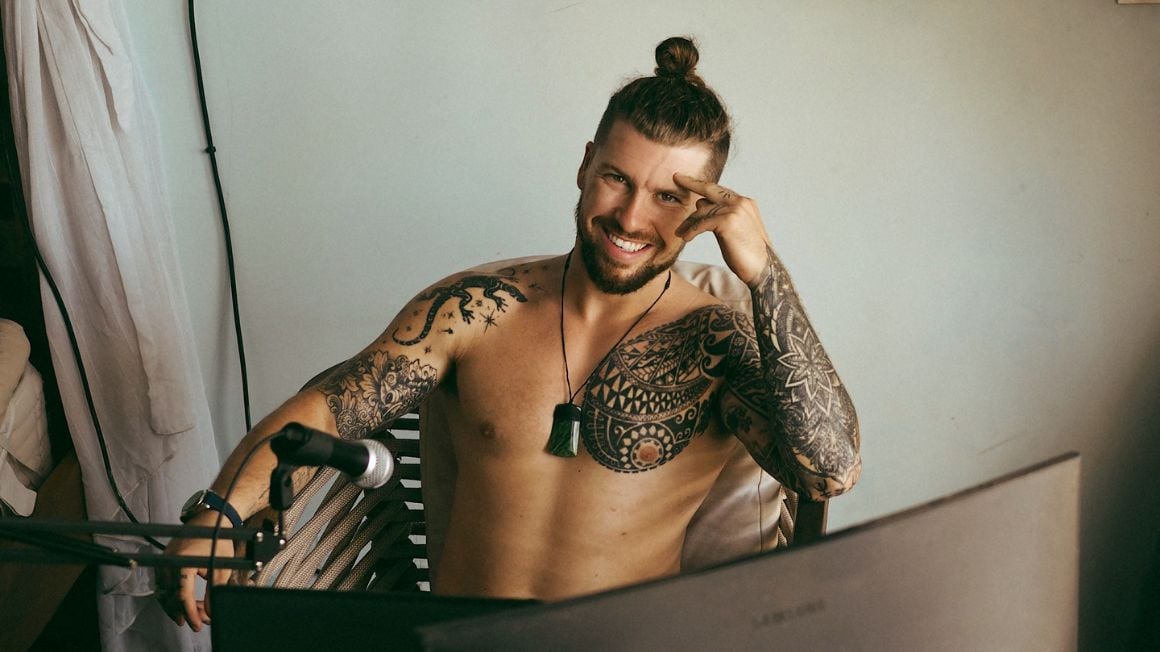
Photo: @willhatton__
Whilst some of these influencers are making money, they are often making money from selling courses or products on HOW to make money (and that’s the only way there are) – which is ironic.
It’s very easy as a new entrepreneur to lose confidence when you can’t replicate the same results you are seeing others in the space talk about – I struggled with this comparison game for a while and then eventually just stopped following anybody who triggered me in this way and focussed on what I was doing, rather than worrying about what others were doing.
It takes time and grind, years and strategy, to build something truly epic… it can be done, but be careful whom you take advice from and do not compare yourself to others because this is a zero sum game.
We live in a time where it’s never been easier to LOOK successful and never been harder to feel grounded in what REAL success even means.
What you are building might not come with flashy metrics right away but it’s real and it’s yours.
Building a business of your own is already a rollercoaster, the last thing you need to do is start doubting your process just because someone else’s looks shinier on Instagram – trust me when I tell you, whatever you see is either only part of the story or not actually representative of the story at all.
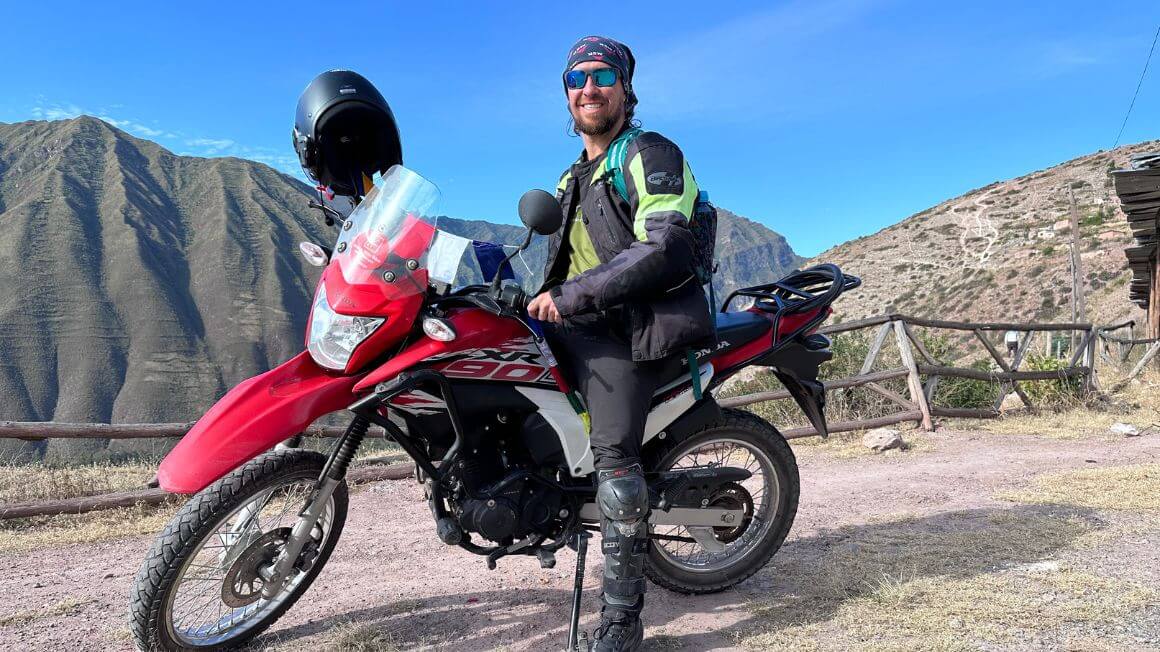
Photo: @willhatton__
Here’s what I’ve learned about the comparison game:
– You can’t build something amazing if you’re constantly doubting your own path.
– You don’t need to prove yourself to the internet.
– The people who are REALLY DOING the work, they’re often too busy crushing it to brag about it everyday or to sell coaching courses.
So keep going, quietly, boldly, honestly, and trust your timing. The real flex? Staying true to yourself, locking in, doing the work, and building your future quietly and diligently.
Psssst!
Interested in evolving as an entrepreneur whilst meeting like minded people and seeing some of the highlights of Bali? This October 2025, I am hosting the first ever Ditch Your Desk retreat to Bali where you can jump into daily workshops with me on the specifics of strategy, mindset and how to make money online. I might never do this again, so jump in now whilst you can – details are here.
Check it OutBONUS Lesson 13: Be Kind to Yourself
The path of an entrepreneur is fraught with perils and disappointments, late-night anxieties and 5am calls.
It is a journey that will challenge you and you may at times feel like it is breaking you… but if you can simply hold on, can tackle problems with enthusiasm and positivity, can lock in and focus, then you will ultimately succeed.
It may take time, and it will definitely cost you in energy, sweat and tears. Sacrifices will need to be made. You WILL think about giving up at some point. You will be lied to, you will be let down.
Your feelings will be hurt. Your ego will be bruised. You will wonder if anybody cares or knows about what you are doing. You will wonder if you’re going to make it or if this dream is a waste of time. It can be a truly challenging journey and it isn’t for everyone.
You may feel utterly alone.
But here’s the thing my friend, you are not alone.
None of us are.
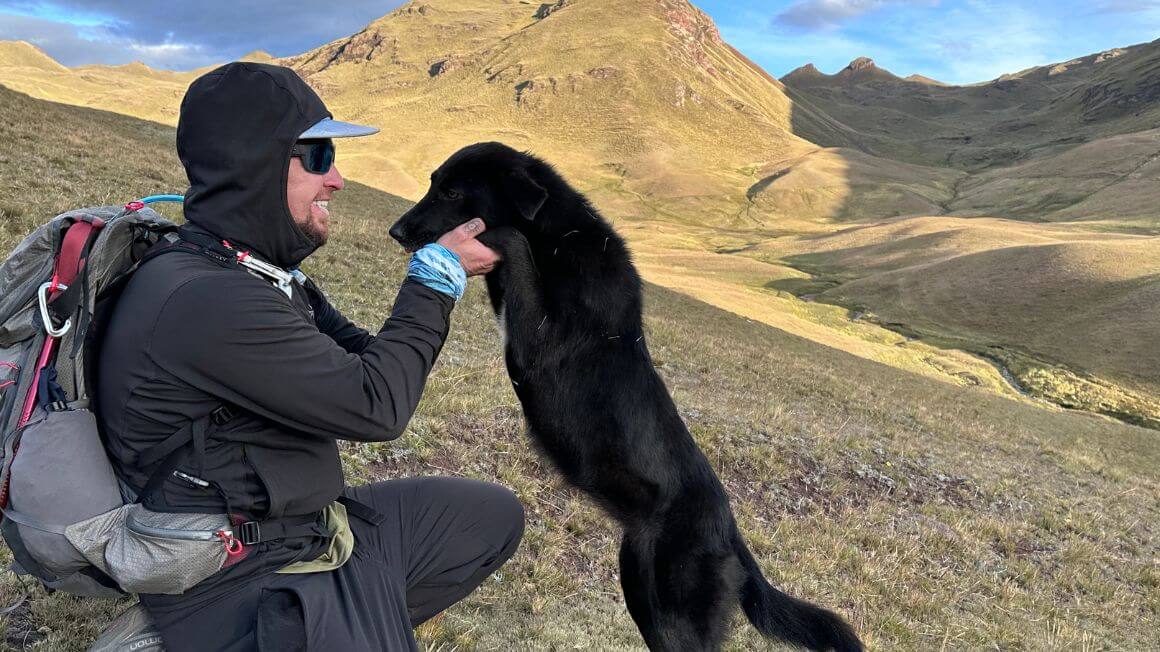
We all carry an internal voice. And this voice can be your greatest cheerleader, or your worst critic. As somebody who struggled for a long time with negative self talk, I can tell you that we must kill negative self-talk with kindness.
Find the courage to accept yourself, to face yourself with your highs and lows, your pros and cons. None of us are perfect, be KIND to yourself…. If you can do this, it will be much easier to handle the rollercoaster of entrepreneurship and you will have a higher chance of success.
It’s easy to push personal development far into the future, to think “I’ll sort my head out once my business is working and I’m less stressed about money”. It’s true that the greatest benefit of money is you win back your time and can then choose how to spend it, however you will have a lot more mental clarity, a lot more positivity, enthusiasm and gratitude if you are able to be kind to yourself as you go.
This is a foundational block; getting out from under the crushing weight of a voice you can’t escape from, a voice that is not encouraging or kind – be kind to yourself, and you will ultimately have more energy for your quest into the far-flung lands of Entrpreneurshipistan and more chance of succeeding upon your journey.
It IS hard… entrepreneurship is not easy. But the rewards are worth it.
Ultimately, the path of the entrepreneur is one of the most incredible journeys that can be undertaken. And along the way, great riches await – financial freedom, the opportunity to work from anywhere in the world and the greatest treasure of all; proving to yourself through repetition, habits tracked and promises kept, that you are developing as a human and growing into the person you want to be, that you are becoming the own hero in your story.
What would the most heroic version of you do? Where would they go? What would their journey, their hopes and dreams, look like?
Only you can answer that.
Make it an answer you can be proud of.
Wherever your journey takes you amigo, I’ll be rooting for you.
Books and Resources I recommend
- Greenlights – By my hero, McConaughey.
- Tools of Titans – Spot the trends amongst world class performers, see clear habit wins.
- The Alchemist – A powerful lesson within a beautiful story.
- Trello – incredible for organisation.
- Wizard Wall static whiteboards – my favourite tool of all time.
- Kurzgesagt gratitude journal – pick it up once a week, fill it in over years, it’s fun to read back on.
And that’s it friends, I hope this post has been of value to you and if you got this far, thank you for reading.
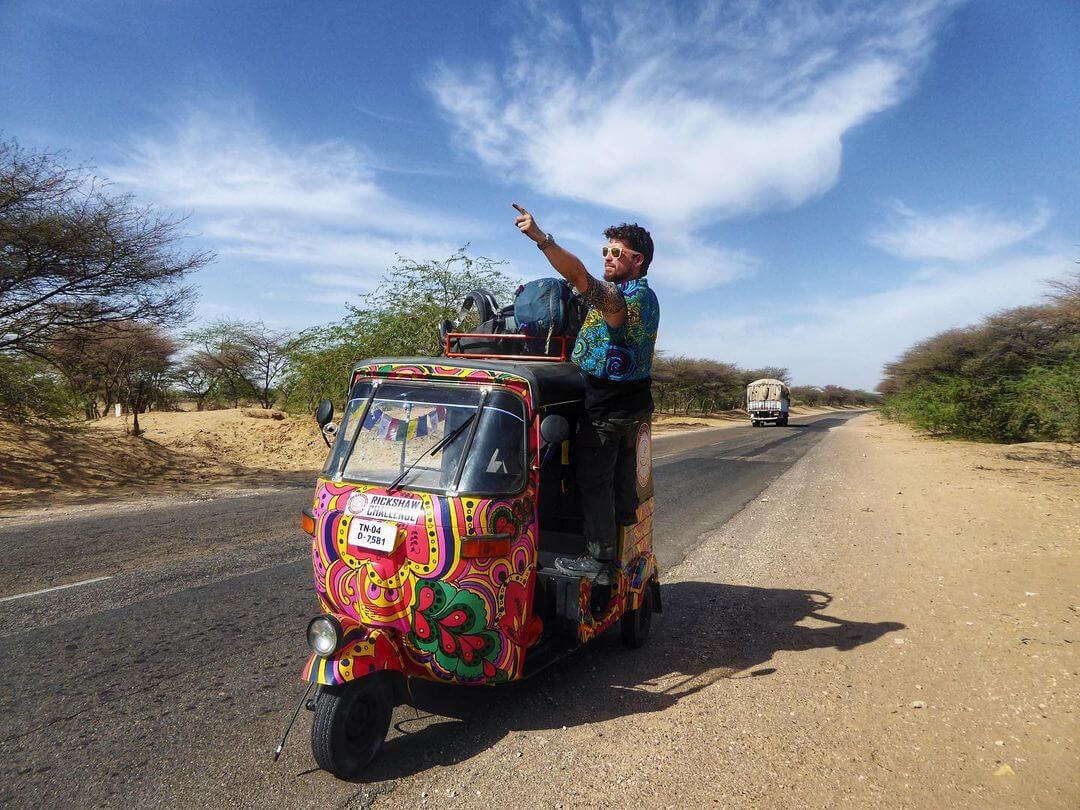
Buy Us a Coffee!
A couple of you lovely readers suggested we set up a tip jar for direct support as an alternative to booking through our links, since we’ve decided to keep the site ad-free. So here it is!
You can now buy The Broke Backpacker a coffee. If you like and use our content to plan your trips, it’s a much appreciated way to show appreciation 🙂


